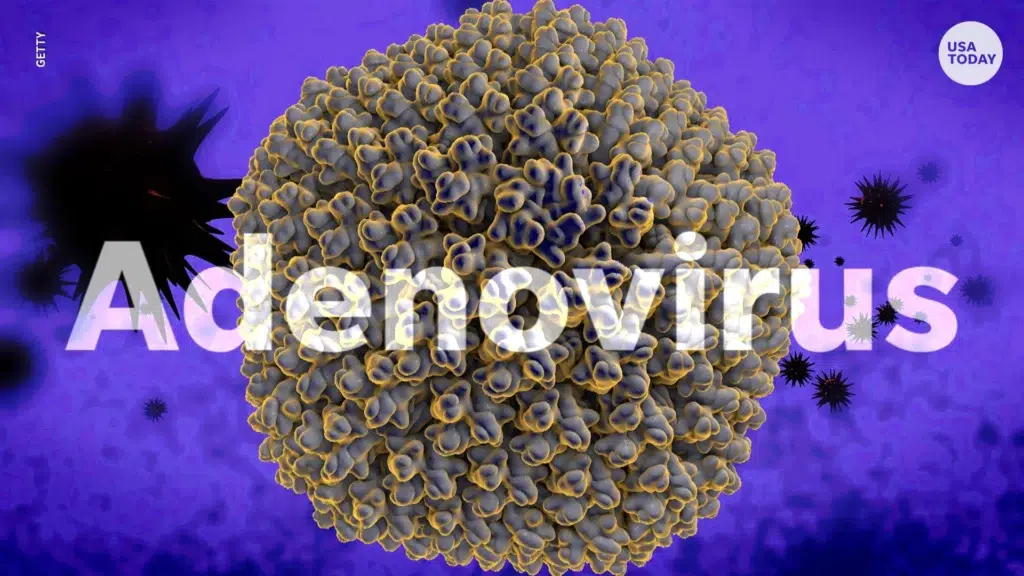Influenza Co-infections (RSV Adenovirus hMPV)
Influenza and the Troublemakers: RSV, Adenovirus, and Human Metapneumovirus Co-infections
Influenza, which is also referred to as the flu, is a virus-induced respiratory disease. It’s not the only player on the pitch, even when fever, coughing, and exhaustion cause disruptions in our lives. Co-infections occur when additional respiratory viruses join the mix. This article delves further into co-infections with influenza caused by three common viruses: adenovirus, human metapneumovirus (hMPV), and respiratory syncytial virus (RSV).
Table of Contents

RSV, Adenovirus, and hMPV are the usual suspects.
Influenza Co-infections (RSV Adenovirus hMPV)
- RSV stands for respiratory syncytial virus: This virus usually results in pneumonia or bronchiolitis, an inflammation of the tiny airways, and is a common cause of lower respiratory tract infections (LRTIs) in newborns and early children. RSV infections can be serious for susceptible groups, even though they are usually mild.
- Adenovirus: This class of viruses is responsible for a number of diseases, such as gastroenteritis (vomiting and diarrhoea), conjunctivitis (pink eye), and respiratory infections. All ages can be affected by adenovirus infections, however youngsters visiting daycare centres or military training facilities are more likely to get them.
- Human Metapneumovirus (hMPV): LRTIs can also be caused by the human metapneumovirus (hMPV), which is more common in young infants. The symptoms are usually milder than those of RSV. Although hMPV infections can happen at any time of year, they are most common in late spring and early summer.
The Double Whammy: Why Co-infections Matter
Influenza Co-infections (RSV Adenovirus hMPV)
For a number of reasons, co-infections with influenza and similar viruses can pose a greater threat than isolated infections.
- Rise in Illness Seriousness: Research indicates that co-infections may cause more serious sickness, requiring lengthier hospital stays and a higher chance of follow-up issues like pneumonia.
- Recognising the Dual Problem: It might be challenging to distinguish influenza from co-infections based alone on symptoms. The individual viruses implicated can be identified with the use of diagnostic procedures.
- Possible Effect on Treatment: Although modern influenza treatments are generally effective against influenza regardless of co-infection, the presence of another virus may alter treatment decisions.
Who Takes the Hardest Hit in the Battle on Two Fronts?
Influenza Co-infections (RSV Adenovirus hMPV)
Although co-infections can happen to everyone, some groups are more vulnerable than others:
- Young Children: They are more vulnerable to influenza and other respiratory infections due to their immature immune systems.
- Older Adults: The risk of complications from influenza and co-infections increases with age due to weakened immune function.
- Individuals with Chronic Health disorders: Co-infections might worsen if underlying medical disorders such as diabetes, heart disease, or asthma are present.
Protecting Ourselves: Preventative Actions
Influenza Co-infections (RSV Adenovirus hMPV)
The main defence against influenza and its consequences is vaccination. The yearly influenza vaccine guards against the strains of the virus that are most common during that particular season.
The following actions can also lower the risk of co-infections and influenza:
- Handwashing frequently: This easy habit can greatly stop the spread of respiratory viruses.
- Respiratory Hygiene: Observe good respiratory hygiene by covering your cough or sneeze with your elbow or a tissue.
- Steer clear of close contact with sick people: Keep your distance from people who seem to be suffering from the flu.
- Sustaining an Invigorating Lifestyle: Your immune system can be strengthened by reducing stress, eating a balanced diet, and getting adequate sleep.
In summary, knowledge is power.
Influenza Co-infections (RSV Adenovirus hMPV)
Co-infections of influenza with hMPV, adenovirus, and RSV can be more problematic than isolated infections. We may protect ourselves and our loved ones by practicing proper hygiene and being vaccinated against these viruses by being aware of the hazards associated with co-infections. Recall that seeking advice and a diagnosis from a healthcare professional is essential, particularly for those who pose a high risk.


